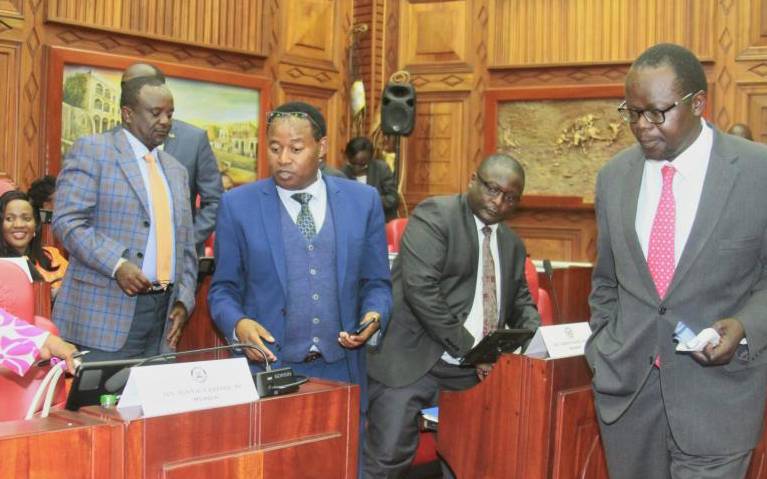×
The Standard e-Paper
Home To Bold Columnists

Senate Special Committee Investigating the of Taita Taveta Governor Granton Samboja leave after their meeting at the County Hall, Nairobi on October 22, 2019. [Boniface Okendo,Standard]
The fate of embattled Taita Taveta Governor Granton Samboja is expected to be determined today.